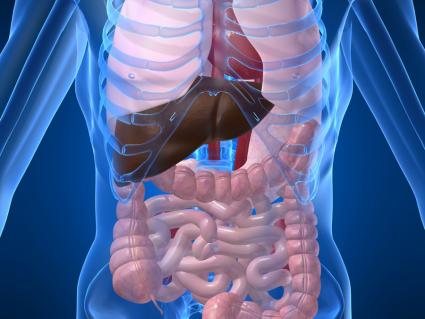Which diet is right for you?

Many people wonder which diet is best for them based on what they are told be friends, a healthcare provider, what they hear on TV, what they read on the internet, or what is suggested by a loved one. Here at the Stram Center we recommend a variety of diets for our patients depending on their individual needs. Read below for an explanation of the dietary approach of the Stram Center! Also learn about the pros and cons of the most common diets recommended to our patients.
Which diet is right for you?
Many people wonder which diet is best for them based on what they are told be friends, a healthcare provider, what they hear on TV, what they read on the internet, or what is suggested by a loved one. Here at the Stram Center we recommend a variety of diets for our patients depending on their individual needs. The diets recommended here can include, vegan, vegetarian, plant-based, Mediterranean, gluten/dairy/sugar free, low fiber, high fiber, paleo/plant-based paleo, and several others.
The nutritional approach of the Stram Center practitioners and Registered Dietitian, is one of embracing lifestyle changing. This means that we meet you where you are in terms of your current lifestyle, and help you make small, gradual, and meaningful changes to help optimize your health over time. We will develop an individually tailored plan to help you meet your own unique needs. This means that we will help you decide which approach is best for you in terms of guiding you to meet your health goals based on our professional expertise.
A big part of lifestyle changing is giving someone a practical plan that will not increase stress in their lives. This means that if someone eats foods that are suggested a person move away from, there will be not judgement, just continued support and guidance to help one continue to move towards optimal health. This approach has been found to be very successful by many patients as they work to improve their health.
Due to the potential impact lifestyle has on our overall health, the Stram Center believes it is essential to embrace a healthy lifestyle to help better manage one’s treatment plan and to promote optimal recovery. A healthy lifestyle can be defined in many ways, but the Stram Center feels it is important to optimize the following four areas:
- Diet
- Exercise/ Physical Activity
- Sleep
- Stress Management
Let the Stram Center Practitioners work with you to develop an individually tailored plan to optimize your lifestyle during your treatment.
Below is a brief listing of the pros and cons of the most popular diets that our practitioners recommend.
Vegan/ Whole-Foods, Plant-Based
Pros: Embraces eating lots of plant based foods while avoiding animal based foods, which may have strong protective components for one’s health. Has strong research to support this approach (1-9). The food choices made have a significantly less impact on the environment than diets including animal based or animal derived foods, due to a lower carbon and methane footprint. According to the Academy of Nutrition and Dietetics Position Statement on Vegetarian/Vegan Diets, “appropriately planned vegetarian diets, including total vegetarian or vegan diets, are healthful, nutritionally adequate, and may provide health benefits in the prevention and treatment of certain diseases. Well-planned vegetarian diets are appropriate for individuals during all stages of the life cycle, including pregnancy, lactation, infancy, childhood, and adolescence, and for athletes” (10).
Vegan and vegetarian diets may include soy based proteins such as tempeh, tofu, and edamame as a protein source. Studies suggest that as little as one serving of soy daily for children and/or teenagers decreases breast cancer risk later in life by 25 to 50 percent (11). Soy has been found to be helpful for other conditions, including: heart disease, relieving hot flashes, preventing/treating prostate cancer, and promoting bone health for postmenopausal women (12).
Cons: Not all vegan diets embrace a whole-foods, plant-based approach which includes minimal processing and preservatives. Some vegan diets can have large amounts of refined foods and refined sugar. Vegans must ensure to take a vitamin b12 supplement to prevent deficiency, however this may be an advantage for people over the age of 50, as people’s ability to absorb vitamin b12 from meat and dairy decreases as we age. A vegan diet consisting of mostly refined foods may increase the risk of developing iron deficiency, due to the high iron content of most vegan diets coming from whole-foods (beans, lentils, green leafy vegetables, nuts or seeds). Iron deficiency is no more common among vegetarians than the general population, and although vegans have been found to have lower iron stores (13,14) their serum ferritin levels tend to be within normal limits (15,16).
Vegetarian
Pros: Embraces eating lots of plant based foods while avoiding animal based foods, which may have strong protective components for one’s health. Has strong research to support this approach (1-9). The food choices made may have a significantly less impact on the environment than diets including animal based or animal derived foods, due to a lower carbon and methane footprint.
Cons: Some vegetarian diets can include large amounts of dairy and eggs which may have negative impacts on one’s health. Not all vegetarian diets embrace a whole-foods, plant-based approach which includes minimal processing and preservatives. Some vegetarian diets can have large amounts of refined foods and refined sugar.
Mediterranean
Pros: Embraces eating lots of fresh produce which has strong protective components. Also embraces eating locally, regionally, and simple. Has strong research to support this approach (17-19).
Cons: There are little to no genetically engineered foods in Europe, so it may be hard to truly follow a Mediterranean diet in the US, unless the grain products and produce consumed are ensured to be free of genetically engineered foods. There are many interpretations of this diet, some may be lacking in plant-based foods, and higher in animal based foods than what is commonly found in the Mediterranean. The Mediterranean lifestyle is quite different from an American lifestyle including working hours, lunch break duration, and freshness of food consumed, so there may be other factors besides the diet which bring about its success.
Gluten/Dairy/Sugar Free
Pros: Typically minimizes foods that can be inflammatory for some people (gluten, dairy, and sugar). Embraces eating lots of fresh produce which has strong protective components. Can remove many of the processed foods and refined sugars in one’s diet.
Cons: Many of the gluten free, dairy free and sugar free products available are still highly processed. If done incorrectly, someone could still be consuming high amounts of processed foods while avoiding gluten, dairy, and sugar. It someone has an issue digesting grains, they will not find relief from this approach as it still includes grains and grain products.
Paleo/ Plant-Based Paleo
Pros: Embraces eating lots of plant based foods while avoiding refined and processed foods, which may have strong protective components for one’s health. Embraces eating cleanly, and eating foods close to their natural food source. Removes dairy, sugar, and grains, which may have negative health impacts for some.
Cons: There are many interpretations of this diet, some may be lacking in plant-based foods, and higher in animal based foods than what is commonly recommended by the Stram Center. For this reason, the Stram Center emphasizes that a paleo diet should be mostly plant-based, including legumes for those who tolerate them. As the popularity of this approach is relatively new, there is not strong scientific research to support the health benefits of this approach, but there is research that supports components of this approach such as eating large amounts of fruits and vegetables, while avoiding processed and refined foods (20-21).
References:
1. Tuso PJ, Ismail MH, Ha PB, Bartolotto C. Nutritional Update for Physicians: Plant-Based Diets. Perm J. 2013 Spring; 17(2): 61–66 http://www.ncbi.nlm.nih.gov/pmc/articles/PMC3662288/
2. Berkow SE, Barnard N. Vegetarian diets and weight status. Nutr Rev. 2006 Apr;64(4):175–88. DOI: http://dx.doi.org/10.1111/j.1753-4887.2006.tb00200.x.
3. Barnard ND, Cohen J, Jenkins DJ, et al. A low-fat vegan diet improves glycemic control and cardiovascular risk factors in a randomized clinical trial in individuals with type 2 diabetes. Diabetes Care. 2006 Aug;29(8):1777–83. DOI: http://dx.doi.org/10.2337/dc06-0606.
4. Vang A, Singh PN, Lee JW, Haddad EH, Brinegar CH. Meats, processed meats, obesity, weight gain and occurrence of diabetes among adults: findings from Adventist Health Studies. Ann Nutr Metab. 2008;52(2):96–104. DOI: http://dx.doi.org/10.1159/000121365.
5. Ornish D, Scherwitz LW, Billings JH, et al. Intensive lifestyle changes for reversal of coronary heart disease. JAMA. 1998 Dec 16;280(23):2001–7. DOI: http://dx.doi.org/10.1001/jama.280.23.2001.
6. Huang T, Yang B, Zheng J, Li G, Wahlqvist ML, Li D. Cardiovascular disease mortality and cancer incidence in vegetarians: a meta-analysis and systematic review. Ann Nutr Metab. 2012;60(4):233–40. DOI: http://dx.doi.org/10.1159/000337301.
7. Chao A, Thun MJ, Connell CJ, et al. Meat consumption and risk of colorectal cancer.
JAMA. 2005;293:172-82 http://www.ncbi.nlm.nih.gov/pubmed/15644544
8. Giovannucci E1, Liu Y, Stampfer MJ, Willett WC. A prospective study of calcium intake and incident and fatal prostate cancer. Cancer Epidemiol Biomarkers Prev. 2006 Feb;15(2):203-10.
http://www.ncbi.nlm.nih.gov/pubmed/16492906
9. Huang T, Yang B, Zheng J, Li G, Wahlqvist ML, Li D. Cardiovascular disease mortality and cancer incidence in vegetarians: a meta-analysis and systematic review. Ann Nutr Metab. 2012;60(4):233–40. DOI: http://dx.doi.org/10.1159/000337301
10. . Craig,Winston J., PhD, MPH, RD., Mangels,Ann R., PhD, RD, LDN, FADA. Position of the american dietetic association: Vegetarian diets. J Am Diet Assoc. 2009;109:1266-1282.
http://www.ncbi.nlm.nih.gov/pubmed/19562864
11. Messina M, Hilakivi-Clarke L. Early intake appears to be the key to the proposed protective effects of soy intake against breast cancer Nutr Cancer. 2009;61:792-8.
http://www.ncbi.nlm.nih.gov/pubmed/20155618
12. Messina,Virginia, MPH, RD. Isoflavones. American Dietetic Association Vegetarian Nutrition Dietetic Practice Group Web site. www.VegetarianNutrition.net. Published 2009. Updated 2009.
13. Haddad EH, Berk LS, Kettering JD, Hubbard RW, Peters WR. Dietary intake and biochemical, hematologic, and immune status of vegans compared with nonvegetarians. Am J Clin Nutr 1999;70(suppl):586S-93S.
http://www.ncbi.nlm.nih.gov/pubmed/10479236
14. Obeid R, Geisel J, Schorr H, et al. The impact of vegetarianism on some haematological parameters. Eur J Haematol. 2002;69:275-9.
http://www.ncbi.nlm.nih.gov/pubmed/12460231
15. Ball MJ, Bartlett MA. Dietary intake and iron status of Australian vegetarian women. Am J Clin Nutr. 1999;70:353-358.
http://www.ncbi.nlm.nih.gov/pubmed/10479197
16. Alexander D, Ball MJ, Mann J. Nutrient intake and haematological status of vegetarians and age-sex matched omnivores.Eur J Clin Nutr. 1994;48:538-546.
http://www.ncbi.nlm.nih.gov/pubmed/7956998
17. Trichopoulou A, Martínez-González MA, Tong TY, et al. Definitions and potential health benefits of the Mediterranean diet: views from experts around the world. BMC Medicine. 2014;12:112. doi:10.1186/1741-7015-12-112. http://www.ncbi.nlm.nih.gov/pmc/articles/PMC4222885/
18. García-Fernández E, Rico-Cabanas L, Rosgaard N, Estruch R, Bach-Faig A. Mediterranean Diet and Cardiodiabesity: A Review. Nutrients. 2014;6(9):3474-3500.
http://www.ncbi.nlm.nih.gov/pmc/articles/PMC4179172/
19. Sleiman D, Al-Badri MR, Azar ST. Effect of Mediterranean Diet in Diabetes Control and Cardiovascular Risk Modification: A Systematic Review. Frontiers in Public Health. 2015;3:69.
http://www.ncbi.nlm.nih.gov/pmc/articles/PMC4411995/
20. Jönsson T, Granfeldt Y, Ahrén B, et al. Beneficial effects of a Paleolithic diet on cardiovascular risk factors in type 2 diabetes: a randomized cross-over pilot study. Cardiovascular Diabetology. 2009;8:35. doi:10.1186/1475-2840-8-35.
http://www.ncbi.nlm.nih.gov/pmc/articles/PMC2724493/
21. Klonoff DC. The Beneficial Effects of a Paleolithic Diet on Type 2 Diabetes and Other Risk Factors for Cardiovascular Disease. Journal of Diabetes Science and Technology. 2009;3(6):1229-1232. http://www.ncbi.nlm.nih.gov/pmc/articles/PMC2787021/





















